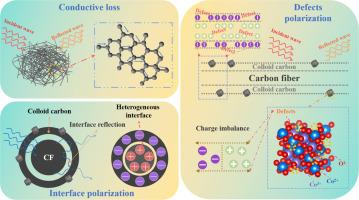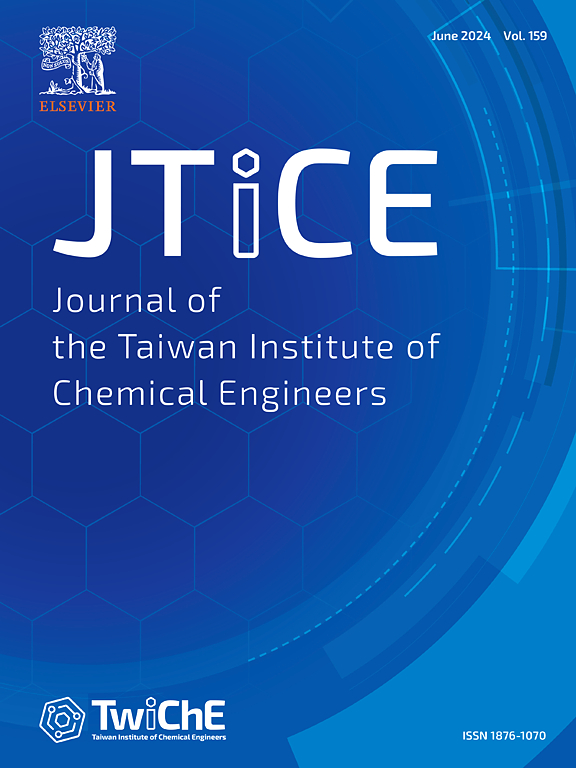Rich defects and hetero-interface trigger strong polarization relaxation in Carbon Fiber/C/Zn@Co-ZIF Derivatives with brilliant electromagnetic wave absorption
IF 6.3
3区 工程技术
Q1 ENGINEERING, CHEMICAL
Journal of the Taiwan Institute of Chemical Engineers
Pub Date : 2025-09-10
DOI:10.1016/j.jtice.2025.106388
引用次数: 0
Abstract
Developing advanced electromagnetic-wave absorbing materials that are thin, lightweight, broadband, and highly absorptive is essential for tackling electromagnetic-wave attenuation challenges in complex environments. Carbon fiber is considered an ideal matrix material due to its low density, high strength, and excellent mechanical properties. However, the terrible impedance match owing to high permittivity of carbon fiber hinders the application in the field of absorbent. Herein, a strategy of compositing MOF derivatives with carbon fibers were proposed and a new kind of complex was obtained. Due to the introduction of Co element, the composite complex material obtained through in-situ growth achieved a brilliant impedance matching performance thus realized a minimum reflection loss (RLmin) of -67.14 dB at 14.16 GHz and a matching thickness of 1.6 mm, along with an effective absorption bandwidth of 4.4 GHz. Besides, the introduction of a colloid carbon layer enhanced the interface polarization effect, enabling efficient electromagnetic wave absorption at a relatively thin coating thickness. This work offers a promising approach for designing and fabricating next-generation ultra-thin, high-performance stealth coating materials.

丰富的缺陷和异质界面引发了碳纤维/C/Zn@Co-ZIF衍生物的强极化弛豫,具有优异的电磁波吸收
开发薄、轻、宽、高吸收的先进电磁波吸收材料对于解决复杂环境下的电磁波衰减挑战至关重要。碳纤维由于其低密度、高强度和优异的机械性能而被认为是一种理想的基体材料。然而,由于碳纤维的高介电常数导致的阻抗匹配严重阻碍了其在吸收材料领域的应用。本文提出了一种碳纤维复合MOF衍生物的策略,得到了一种新型的配合物。由于Co元素的引入,原位生长获得的复合复合材料具有优异的阻抗匹配性能,在14.16 GHz时实现了-67.14 dB的最小反射损耗(RLmin),匹配厚度为1.6 mm,有效吸收带宽为4.4 GHz。此外,胶体碳层的引入增强了界面极化效应,在较薄的涂层厚度下实现了高效的电磁波吸收。这项工作为设计和制造下一代超薄、高性能隐身涂层材料提供了一种有前途的方法。
本文章由计算机程序翻译,如有差异,请以英文原文为准。
求助全文
约1分钟内获得全文
求助全文
来源期刊
CiteScore
9.10
自引率
14.00%
发文量
362
审稿时长
35 days
期刊介绍:
Journal of the Taiwan Institute of Chemical Engineers (formerly known as Journal of the Chinese Institute of Chemical Engineers) publishes original works, from fundamental principles to practical applications, in the broad field of chemical engineering with special focus on three aspects: Chemical and Biomolecular Science and Technology, Energy and Environmental Science and Technology, and Materials Science and Technology. Authors should choose for their manuscript an appropriate aspect section and a few related classifications when submitting to the journal online.

 求助内容:
求助内容: 应助结果提醒方式:
应助结果提醒方式:


